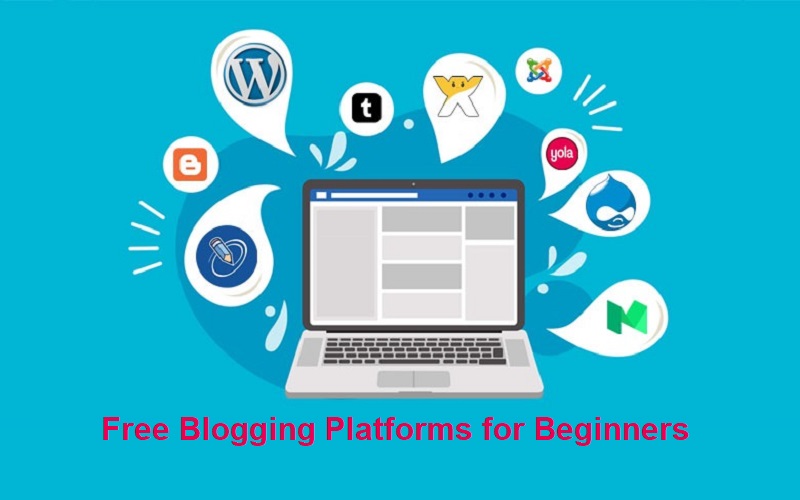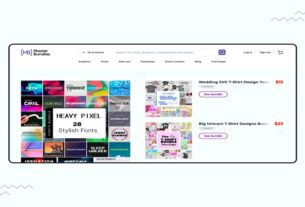People express their thoughts, share knowledge, and generate income through blogging. Whether you’re an amateur writer or an entrepreneur, starting a blog can be a great way to connect with your audience and build your online presence.
Currently, there are numerous blogging platforms available which cater to all levels of expertise and budgets. Therefore, it is important to find a platform that suits your needs, technical skill level, and preferences.
There are several free options that offer an excellent starting point for beginners. We’ll provide a comprehensive guide to finding the perfect platform for your blogging journey.
Before that, there are some factors you need to consider, especially when you’re new to the blogosphere.
Factors to Consider when Choosing a Free Blogging Platform
There are several free blogging platforms out there. And non is created equal. Each blogging platform has its unique features, benefits, and limitations.
Here are some important factors to consider when choosing a free blogging platform to help you make an informed decision.
Ease of Use
Easy and user-friendly features are essential if you’re new. It is important to use a blogging platform with a user-friendly interface that allows you create, edit, and publish content seamlessly.
Features such as drag-and-drop editors, pre-designed templates, and a simple dashboard, can make blogging easy, especially if you have little or no technical experience.
Customization Options
Being able to customize your blog to reflect your brand or personality is vital for creating a unique online presence.
Consider the level of customization offered by each platform such as fonts, colors, and availability of themes.
It is important to find a balance between simplicity and flexibility in order to create a visually appealing blog without getting overwhelmed by complex customization settings.
SEO Capabilities
Search Engine Optimization (SEO) plays a significant role in driving traffic to your blog. Look for blogging platforms that offer built-in SEO features or if it allows you to use SEO plugins.
Search for platforms that generate SEO-friendly URLs, offer customizable meta tags, and provide options to optimize your content for search engines.
Features and Functionality
Additionally, consider features that are essential for your blog since different blogging platforms offer a variety of features and functionalities.
Create a list of features you would want your blog to have and find a platform that offers most or all the features.
Technical Support and Resources
Technical challenges are inevitable, even with user-friendly platforms.
Look out for blogging platforms that offer reliable customer support, community forums, or documentation where you can find help and guidance.
It is important to have access to resources and a supportive community to have an amazing blogging experience.
Top Free Blogging Platforms for Beginners
Now that you know what to look out for when choosing a free blogging platform, let’s explore some top free blogging platforms for beginners.
WordPress
WordPress is one of the most popular free blogging platforms. It offers a user-friendly interface, with various themes and plugins, which allows users to customize the appearance of their blogs.
Furthermore, WordPress is SEO-friendly, highly scalable, and can handle websites of various sizes. It also has a large community that offers extensive support, documentation, forums, and tutorial for troubleshooting and learning.
However, it also has some limitations.
Although WordPress is user-friendly, advanced customizations may require some coding knowledge.
Therefore, users with complex design and functionality requirements may need technical assistance.
Also, WordPress has a lot of plugins and themes which can become slow if not optimized correctly.
Performance optimization may require technical expertise.
Another downside of WordPress is that its popularity makes it a target for hackers and malicious attacks.
Fortunately, most security issues arise from using outdated themes or plugins.
To avoid this, you must carefully choose well-supported and regularly updated plugins to avoid conflicts.
Aside the few downsides, WordPress offers several advantages, including ease of use, customization options, SEO capabilities, and a supportive community.
You should be mindful of its limitations.
Wix
This is a popular free website builder that provides blogging functionality, making it a viable option for bloggers.
Like WordPress, Wix’s drag-and-drop editor and user-friendly interface make it very easy for you to create and manage your blog without the need for extensive technical knowledge.
Wix also allows you to easily modify the design, layout, and colors to match your branding and personal preferences.
Furthermore, it has built-in SEO tools to optimize your blog for search engines.
It also automatically ensures that your blog is mobile-responsive. This means that it will adapt and display correctly on various devices.
Wix is suitable for bloggers who prioritize ease of use, design flexibility, and an all-in-one solution that includes hosting and security.
Conversely, this platform also has some limitations, particularly in terms of advanced blogging features, customization options, and dependency on the Wix ecosystem.
Consider your blogging needs and long-term goals carefully to help you determine if Wix is the right fit for your online presence.
Medium
Medium is another free blogging platform with a large and engaged user base. It also has a user-friendly interface with no hosting or technical burden, allowing you to focus solely on creating high-quality content.
Medium encourages readers’ engagement through its various features.
Although it started as an ad-free platform, it has introduced a Partner Program that allows you to earn income based on member reading time.
Just like all other blogging platforms, Medium has some restrictions.
When you publish on Medium, you do not have full control or ownership of your content due to their terms of service.
Medium also offers minimal customization options and does not allow personal branding. It may be more challenging to build a unique brand identity on Medium as compared to running your independent blog.
Again, your specific goals, long-term plans, and preferences as a blogger will determine your decision to use Medium or run an independent blog.
Conclusion
Finding the perfect fit for your blogging journey is essential for a successful online presence.
When you access your needs and understand the features offered by different platforms, you can confidently choose the best free blogging platform that aligns with your goals with digital marketing edge.
The platform you choose is just the starting point. You can always switch gears when the platform you chose doesn’t serve you anymore. Let us know if you need help with setting up your blog, and we’ll do all we can to help you out.



